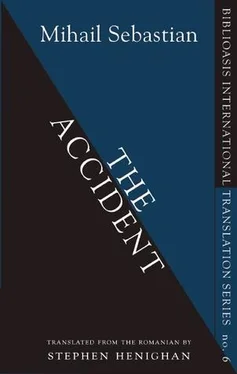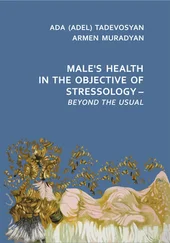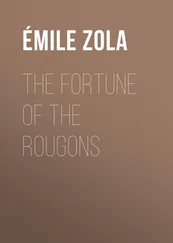Paul listened with his eyes closed. He was still in the forest, still alone. For him, the organ’s deep voice perpetuated the silences that continued to vibrate in its ever lower chords. The orchestra and the choir, brought together in a single musical phrase, now climbed as one to the final step: the doors of the Oratory were open.
A tenor voice was thrown into relief by the ensuing silence. Without melody, it recounted the departure from Galilee. Simple, slightly monotone scales swung like ivy on the central sound of the organ. The tale was then taken up by a woman’s voice, with the same narrative monotony, until the oboe and the violin persuaded her to sing. The transition from the recitation to the aria was marked, over several chords, by the harpsichord, which seemed to demand that they listen to it. On a few occasions, as though the harpsichord’s sound had been too feeble to maintain the bridge between the choral song and the aria, the whole orchestra came to its assistance.
Never, it seemed to Paul, had he heard such clear violins. Maybe it was because of that evening, which for him was unlike any other from his past. Maybe it was because of the forest through which he had come, the solitude in which he had descended… Never had he heard purer, more effortless, more transparent violins. The symphonic sections of the Oratory did not feel at all liturgical. When the orchestra played together, everything seemed to contract into a luminous ring of intimacy. Even the organ, tamed, fell silent in order to listen.
The second part of the Oratory opened with the symphony, from which, after a brief recitative by the tenor, a choral song, which Nora and Paul received with the same surprised motion, broke out.
“Brich an, du schönes Morgenlicht,
Und lass den Himmel tagen.
Du, Hirtenvolk, erschrecke nicht
Weil dir die Engel sagen…”
The whole choir, the whole orchestra, could not cover the distant sound of Gunther’s voice.
“Do you hear him?” Nora asked in a whisper. In the same moment she looked towards the third window on the right, where young Mrs. Grodeck should have been, smiling at her son. But there wasn’t a single young woman beneath the third window and in the whole Black Church not one person was smiling.
Watch them carefully this evening , Gunther had said. The whole clan will be gathering there. Dozens, hundreds of members of the Grodeck family. Not one of them smiles.
And, in fact, not one of them did. They all sat on their benches, intent, stoney-still, without a tremor, without brightness, possibly deaf, possibly absent, possibly dead, while the music of the Christmas Oratory flowed past without touching or awakening them.
As they came out of the church, they found a still nocturnal Braşov with the lights out and the streets deserted. Saxons who had emerged from the concert walked home in silent groups. The city regained its air of a provincial outpost with the Black Church, in the centre, resembling an immense organ.
On Strada Prundului a double-surprise awaited them: an improved Frau Adelle and a welcoming house, each of which had undergone a miraculous change in a matter of hours. The fire had been burning in the fireplace for a long time when they arrived, and it was possible that this alone had succeeded in softening the woman’s heart and tempering the forbidding surroundings. Nora had not looked carefully at the large pieces of dull oak furniture which at first glance had struck her as being, like their hostess, hostile. Only now did she discover them, still severe in appearance, yet amiable. Books and carpets were everywhere. In a corner were a piano and books of sheet music. She leafed through them with surprise: Schumann, Brahms, Schubert.
“Who plays the piano?” she asked Frau Adelle.
“Since young Mrs. Grodeck died, no one plays it any more,” the woman said.
“She used to come here?”
“Who?”
“Young Mrs. Grodeck.”
At once the woman’s gaze became suspicious again. “Yes, she came.”
Nora realized that the question had been a mistake. She must not give the impression that she had prior knowledge. “I have to say, dear Frau Adelle, that at the beginning you frightened us.”
“And you me. When I heard the knocking on the door, I didn’t know who it could be. Nobody comes here, and nobody has to knock on the door. Mr. Klaus, when he comes, lets himself in. He has his own key.”
“Who’s Mr. Klaus?”
“What do you mean, who is he? Didn’t he send you here? Didn’t you have a letter from him?”
“Of course, of course,” Paul said soothingly. “Only we didn’t know that his name was Klaus. We call him Hagen.”
“She called him that, too…”
She pointed to the wall over the piano, where there was an aged-looking photograph of young Mrs. Grodeck.
“Maybe you didn’t meet her. Maybe you didn’t know how pretty she was.”
The photograph resembled the portrait Gunther had sketched, but it looked less sad. It was probably an enlargement of a shot taken with an instant camera. The young woman seemed to have been heading through the woods and to have stopped for a moment to gather her hair. The photograph had caught her in the midst of that movement, which had opened her arms and lifted her forehead towards the sunlight.
Frau Adelle said goodnight and left them alone.
Nora was at the piano, with her hands on the keys, those soundless keys that she didn’t dare to rouse from their silence.
“Do you think he loved her?”
Paul didn’t reply. He had been asking himself the same question. They were both looking up at the portrait on the wall.
“I don’t know if he loved her,” Nora went on. “But she was here. I’m starting to understand why that door opened so slowly. It was the door that should have protected her, should have concealed her… She was here. Like Gunther, I’m starting to believe in ghosts.”
Nora’s fingers sought in the keys the opening notes of this evening’s song: “ Brich an, du schönes Morgenlicht — Young Mrs. Grodeck, you knew that song. I’m singing it for you. Maybe you can hear it, maybe you’ll be happy to hear it.”
BRAŞOV, IN THE FIRST HOURS OF THAT MORNING, seemed to be preparing for the opening of a country market. From Bran, from Râsnov, from all of the seven towns 24, from the whole region, came trucks, buses, sleighs, private cars, bringing in people who had spent the night outside of town. The streets were full of people from Bucharest who greeted each other with cries of surprise, noisily introducing one group to another. Nora and Paul passed by hurriedly, waving, replying to waves, enjoying this influx of Bucharest cheerfulness. When they couldn’t avoid it, they stopped to exchange a few words with an over-enthusiastic acquaintance. Nora introduced him simply, without bashfulness, as, “A skiing buddy.”
They had decided to leave on the 11 AM caterpillar to Poiana, so that they could start the ascent from there before noon. They still had some shopping to do and, to gain time, they divided up the chores.
“You get the cigarettes, magazines and books. I’ll look after the rest,” Nora said.
They arranged to meet at a set time in the lobby of the Coroana, where they had left their skis the night before. Nora wandered from shop window to shop window in search of crampons for hobnailed boots. She was thinking about taking a shortcut on the way back, climbing up Wolf’s Precipice, and she knew that the trail was strewn with rocks and ice. But above all she was drawn by the idea of getting away from Paul and being alone for a few minutes in order to be able to buy in secret a few surprises for the Christmas tree, small trifles which she would take out of her backpack tonight at the lighting of the candles. She returned to the Coroana breathless from running around and afraid that she was late.
Читать дальше












